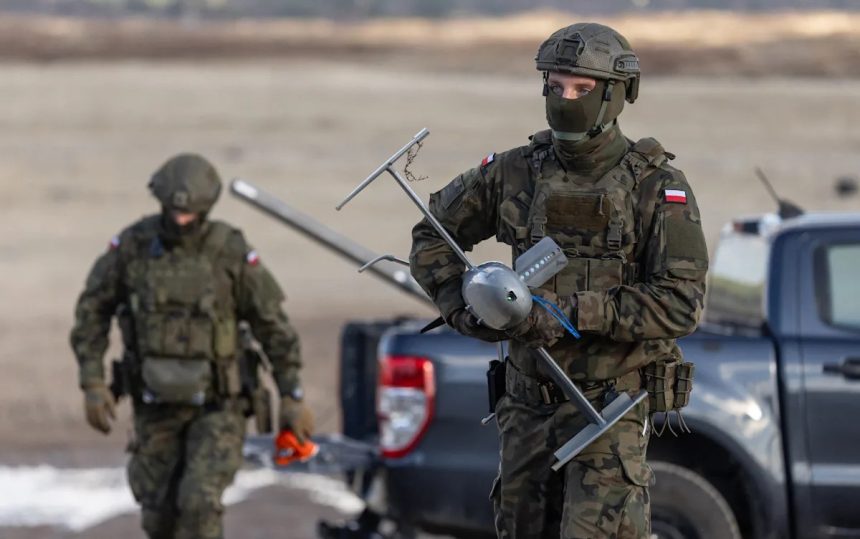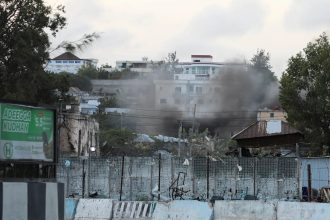Poland is to deploy 10,000 troops to help protect the country’s critical infrastructure from Russia.
Wladyslaw Kosiniak-Kamysz, the Polish defence minister, said soldiers would safeguard infrastructure, such as railway lines, from sabotage attacks.
It follows Sunday’s explosions on a section of train track used for sending aid supplies from Warsaw towards the border with Ukraine. Donald Tusk, the prime minister, said the “unprecedented act of sabotage” was carried out by two Ukrainians collaborating with the Russian intelligence services.
In response to the incident, Poland vowed to close Russia’s last remaining consulate, in Gdansk. Warsaw has shuttered Russian consulates in Krakow and Poznan over sabotage acts.
The Polish defence minister says thousands of soldiers will respond to the threat of more sabotage – Artur Widak / NurPhoto
Radoslaw Sikorski, the Polish foreign minister, said: “I have decided to withdraw consent for the operation of the Russian consulate in Gdansk. It [the railway line attack] was not only an act of sabotage but also an act of state terrorism.”
He said he would ask other EU nations to limit Russian diplomats’ travel in the 25-nation Schengen area, warning that it was “not the end” of Poland’s response.
Moscow denied responsibility for the explosions, citing “Russophobia” in Poland, and said it would place tit-for-tat limits on Poland’s diplomatic and consular presence in Russia.
Asked about the consulate closure, Dmitry Peskov, the Kremlin spokesman, said “relations with Poland have completely deteriorated”, adding: “One can only express regret here … This has nothing to do with common sense.”
A wave of arson, sabotage and cyberattacks in Poland and other European nations has been linked to Vladimir Putin’s hybrid war against Nato allies, which aims to disrupt military support for Kyiv.
Kaja Kallas, the EU’s top diplomat, said the train line attack highlighted the need for better protection in the face of an unprecedented risk to European critical infrastructure.
Ms Kallas said: “We have to have a strong response because what Russia is trying to do is two things. On one hand to test us, to see how far they can go … and try to sow fear within our society.”
The Ukrainian nationals suspected of orchestrating the blast on the Warsaw to Lublin railway line fled for Belarus. Jacek Dobrzynski, a spokesperson for Poland’s minister in charge of intelligence services, said several other people had been detained, but he did not give more details.
Earlier this year, Europol, the EU’s police enforcement agency, accused Russia of using criminal networks to drive an increase in politically motivated sabotage acts, including arson, cyber attacks, data theft and migrant smuggling.
Last month, Warsaw announced that it had worked with Romania to detain eight people suspected of planning sabotage.
Wiesław Kukula, the Polish army’s chief of staff, said nations should be on high alert for attacks at Christmas, when Poland’s enemies could take advantage of long winter nights to target more infrastructure. He said: “We must not allow this to happen.”









